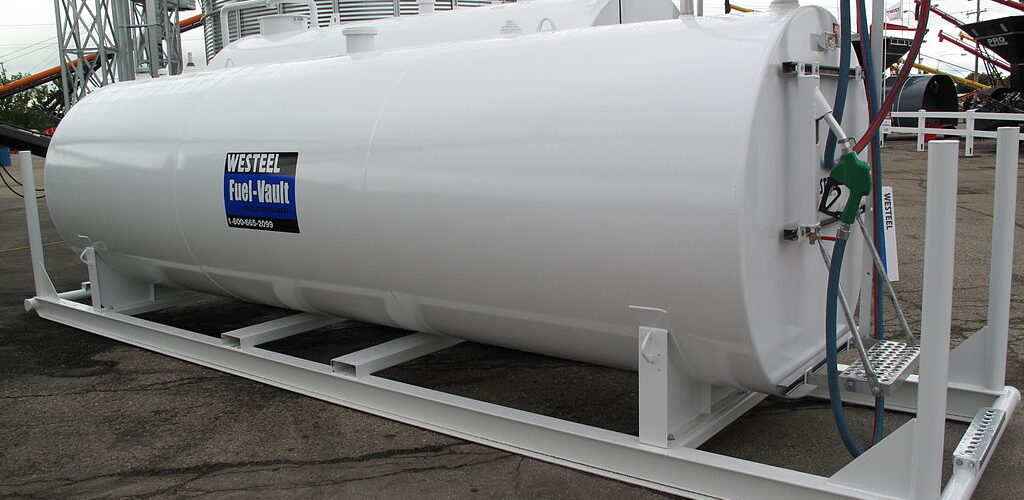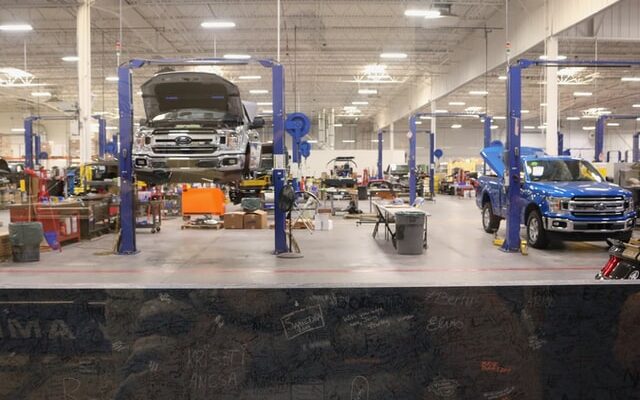
Some businesses require fuel storage tanks for daily operations. For others, they’re an added convenience. Even some homeowners buy them as a source of fuel in case of emergencies. Whatever your reason for storing fuel, there are several factors to take into account. Here are a few of the main ones:
Types of Fuel Tanks
Fuel can be stored above ground or underground, depending on your needs. Here is what you should consider for each type of fuel tank:
Aboveground Fuel Tanks
For most homes and businesses, an aboveground fuel tank will work, and upfront installation costs much less than underground tanks. Aboveground tanks are easy to install and maintain, and it’s clear when leaks or other damage are present. AST’s come in many sizes, shapes and configurations. The most popular sizes are 275 gallon and 500 gallon. Aboveground storage tanks can be single wall or double wall for added spill and containment protection. You can purchase a tank by itself or find one that’s fully equipped and ready to use. All tanks should be professionally installed.
Underground Fuel Tanks
Underground fuel storage tanks need to be registered with the EPA because there is greater risk to the environment via spill and contamination. There’s a lower risk of explosion with underground tanks but a higher chance of undetected leaks and pollution since they’re hidden from view. This more permanent and durable type of tank works best for maximizing space.
Types of Fuel
The type of fuel will be determined by your vehicles and equipment. Here are some of the most popular types and what to consider when storing them for long periods of time:
Diesel
Diesel fuel is the most common for heavy equipment and large trucks and buses. Some of the advantages of diesel include being safe to store and dispense. The main disadvantage of diesel is that it can be susceptible to bacteria and fungi growth. Fortunately, there are chemical and mechanical treatments that can prevent this problem.
Gasoline
Gasoline is the most well known fuel type, typically used in cars, smaller vehicles and light duty equipment. However, because gasoline is highly flammable, there are more regulations around storage. Gasoline is also risky to store because its vapor causes explosions. Despite having a high temperature of ignition, a tiny flame can ignite this type of fuel.
Kerosene
Of the popular types of fuel, kerosene is the easiest to store. This type of fuel remains stable without being treated. It can be used in kerosene-powered vehicles, stoves and refrigerators. Kerosene can be used safely, but when used improperly, it can spread toxic fumes into the air. You need to be careful when using kerosene-powered appliances and keep those appliances professionally maintained.
Fuel Storage Tank Safety
The most important factor to consider when storing combustible or flammable items is safety. Here are some tips for safe fuel storage:
Safety Measures
While each type of fuel has its own qualities, the safety measures to take when storing them are similar. Store fuel in an isolated area, downhill and downwind from other buildings. Leave tanks out in the open in well-ventilated areas. Keep the tank safe from gunfire and brush fires. Never keep a fuel tank inside your home or business, as the vapors may leak and cause fires or toxic chemical exposure.
UL Certification: UL 142 vs. UL 2085
Underwriters Laboratories provides certifications to check on the safety of a range of products. UL-142 is a national standard that covers most types of fuel storage tanks in terms of safety and compliance. UL-2085 is a stricter standard that requires two-hour fire resistance and secondary containment, as well as protection against physical damage. Find out which code you need to meet by checking local safety regulations.
If you’re in the market for an Orlando fuel storage tank, Sunshine Equipment Solutions is here to help. We sell, service and install quality automotive shop equipment. Give us a call at 407-295-8113 or contact us online to learn more.


